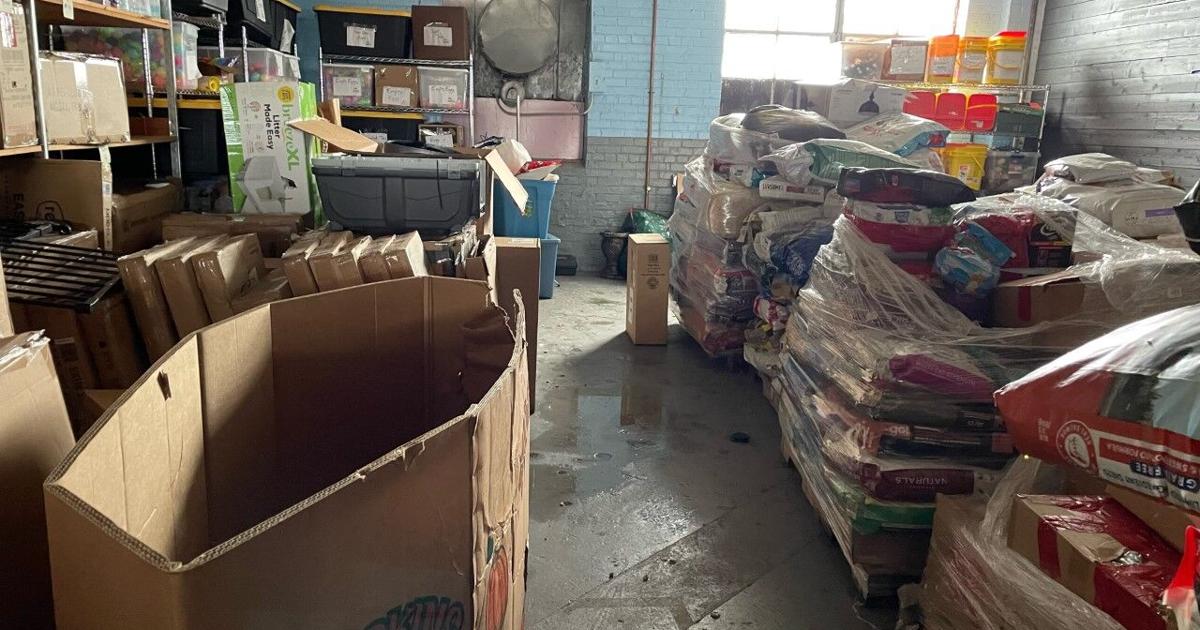ALEXANDRIA – Rising inflation costs are affecting people in many ways, but some may not realize these costs are affecting their pets, as well.
Christin Klimek, executive director of the Lakes Area Humane Society, said shelters are seeing a rise in pet surrenders, a decline in medical care and problems with lack of staffing.
“The primary thing that we’re seeing is inflation overall, and so it’s affecting many areas,” Klimek said. “Because of those costs, pet owners are spending more money on their personal items, and that, of course, leaves less money for pets and pet care. One that same note, vet care has risen substantially, as well, over the last few years.”
Combining these two creates a problem for some pet owners, she said.
“I think we have really started seeing it this year. We’re getting numerous calls for surrenders, especially dogs,” Klimek said.
While the Humane Society had always received many calls about cats, it had gotten to a point where there weren’t as many calls about dogs. Additionally, if a dog came in for adoption, it was gone in a couple of days.
If a dog needed to go to a rescue, one could usually be found quickly.
“It’s very difficult to get a dog placed into a rescue (today),” Klimek said.
They’re also having to stay in shelters for longer periods.
“It’s been a very trying year,” Klimek said. “It really has.”
Another issue is that many of the animals being surrendered have not had standard medical care like vaccinations or spaying/neutering, Klimek said.
The employee shortage is rearing its head, as well, such as with the Humane Society’s involvement with the Minnesota Spay/Neuter Assistance Program, which visits shelters to perform spay/neuter clinics.
Klimek said the program has been “amazing” for the community, with dozens of animals spayed or neutered each visit.
MNSNAP was scheduled to visit the shelter this year, but had to cancel due to lack of staff.
“Without that, we had 170 people scheduled for clinics this year that had to be canceled. And that’s just the tip of the iceberg,” Klimek said.
There’s also the cost of veterinary care. Klimek said that while many vets do give discounts, the overall costs are still rising.
It’s a trend that’s been seen before, she said.
“The only trend that I’ve seen is when there was a recession in the economy in 2008,” Klimek said. “We saw a huge spike in dogs. Again, people were unable to afford their care. People were having to move and couldn’t find placement, or wherever they were moving, they couldn’t find housing for a dog. …
“We’re certainly hoping that this trend will not continue and that at some point we can get back to our (old levels),” she said. “Thankfully, we still have very good cat adoptions. They’ve been steady and consistent, so that’s wonderful. On the dog side, we aren’t seeing as quick adoptions as they were.”
Klimek said if people are looking into getting a pet, they should do their due diligence and research all of the costs that will be involved in raising one, and to make sure they have money set aside should another cost, such as surgery, arise.
“It is important to set monies aside for one of those big things you don’t anticipate,” she said.
In all, Klimek said, “We want to do what’s best for the pet. That’s really the bottom line.”
